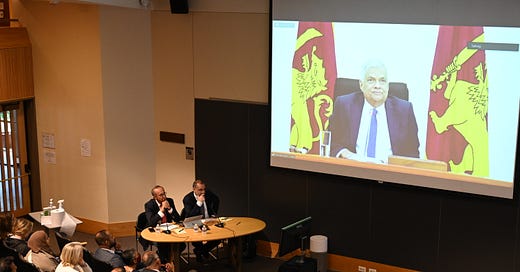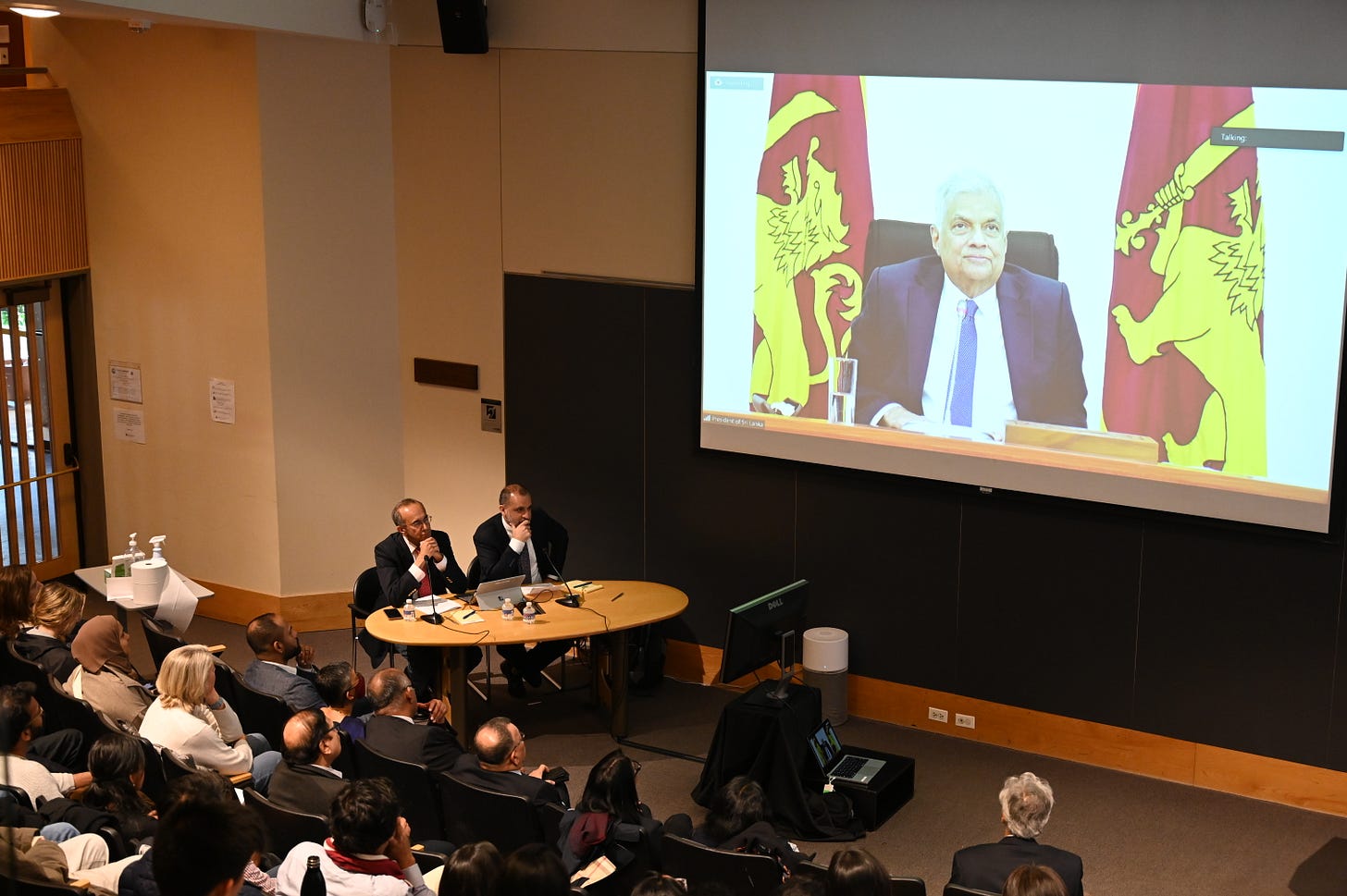Sri Lankan President Wickremesinghe in dialog with Harvard Community
Creating a platform for conversation
Dear readers,
I write this newsletter once every month or so. It features my reflections on the deployment of creativity to making the world’s economic systems (and by extension social and to some extent political systems) more inclusive and, therefore, fairer. That sounds like a tall order – and it is!
If you would like to get the updates directly in your inbox, do subscribe!
Emotions ran high in the run-up to a live virtual event with President Ranil Wickremesinghe of Sri Lanka hosted by the Mittal Institute and the Center for International Development at Harvard. Sri Lanka has been through trauma with its violent, multi-decade civil war fought between the Sinhalese and Tamil communities, an incomplete reconciliation process, and the current economic meltdown visited upon the island by mismanagement of the prior government, ultimately pushed out by a people’s movement.
There was a Twitter storm of protest about inviting the President to have a discussion with the Harvard community, along with a vocal minority recognizing the importance of dialogue despite, or perhaps especially due to, differences in perspective. Peaceful protest was welcomed in the run-up to the event, and during it, both outside and inside the venue.
Asim Khwaja, my colleague at the Harvard Kennedy School, and I moderated the discussion with the President. We followed his opening comments with some three-way conversation, and then unscripted, open-ended questions from diverse Harvard-affiliated attendees, many of whom had a connection to Sri Lanka (by origin, descent or academic interest).
The President’s comments recounted the turmoil surrounding his assuming office, the initial steps to stabilize the economic situation (such as Sri Lanka’s 17th IMF loan), a recognition of the gravity of the long-economic road ahead, the difficulty of engaging with China, an important but demanding lender, and the geopolitics of the Quad countries and China exercising influence around the island nation.
To the students in the room, however, the most important part was the incomplete process of reconciliation from the trauma of the civil war, and what they saw as the system’s unwillingness or inability thus far to hold the recently ended Rajapaksa administration to account.
A pointed interchange occurred between the President and a recent Sri Lankan alumna who expressed willingness to return to work on Sri Lanka’s progress if she, a minority, could be made to feel safe, and her pointed admonition to him – “That’s on you, Mr. President.” Also heartening was the invitation by the President to all students to visit and engage, with the Sri Lankan Ambassador to the U.S. bearing witness from the physical audience.
Most heartening was the courage of the protesting students in the room (and outside). They asked well-formulated, heartfelt questions, unflinchingly and with decorum. A Canadian diplomat, also a Harvard alum, wrote saying that he had an occasion to engage with the protesters after the event in a meaningful dialogue: “While political disagreements are not new in the long history of Sri Lanka’s complex civilization, as peacefully evidenced at the event, your support in hosting us all enabled a vital platform for all the voices in our complex polity to come together at this crucial hour.”
Universities like Harvard should always be a platform for conversation on tough issues, especially with those with whom we might disagree. Festering conflicts all over the world surely qualify, and the Sri Lankan tragedy is a sad reminder of this. But when I see the sincerity and intensity of feeling and commitment of the youth around us, I can still dare to hope.




